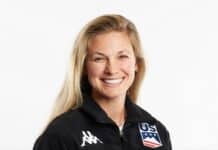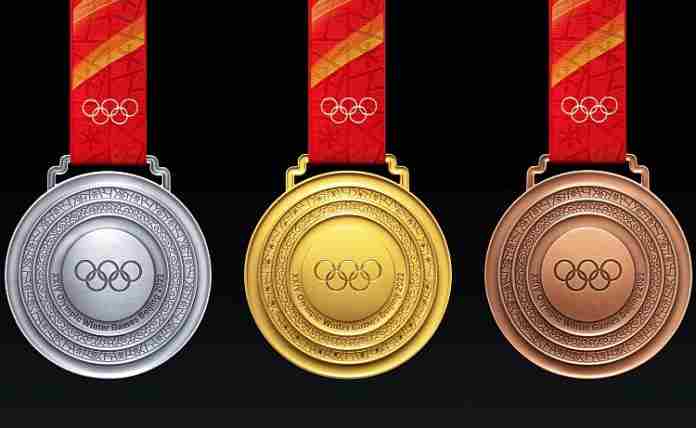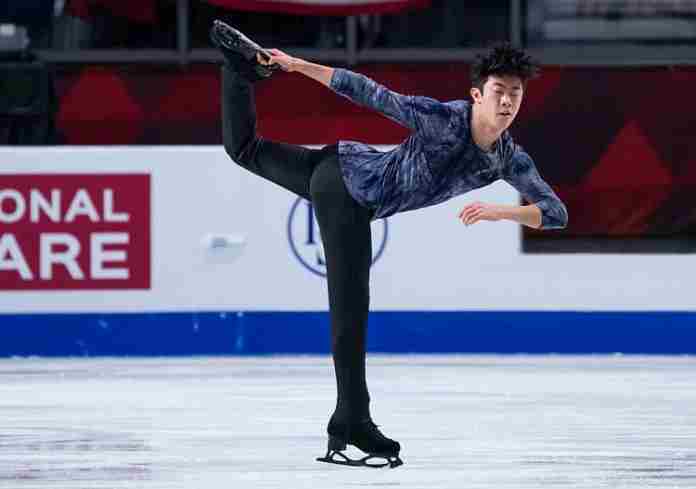The latest news, notes and quotes from the worldwide Five-Ring Circus:
≡ SPOTLIGHT ≡
An online poll of 800 adults in British Columbia from 18-20 October reported a substantial decline in interest in having Vancouver bid for the 2030 Olympic Winter Games.
Polling company Research Co. chief Mario Canseco wrote on Monday (25th) that prior to the Covid-19 pandemic, some 60% of British Columbians were supportive of another Winter Games in Vancouver, which successfully hosted the 2010 Winter Games. And 62% were excited about exploring an Olympic Games bid.
Now, however:
“The nostalgia towards a new Olympic bid that we observed in early 2020 has been supplanted by skepticism in late 2021. Support for Vancouver attempting to host the Winter Olympics in 2030 stands at 43% across British Columbia, down 17 points since January 2020. More dramatically, support in Metro Vancouver plummeted from a healthy 63% in 2020 to a subdued 43% this month.
“A bid for the Summer Olympics is not a dream scenario either, with support in British Columbia dropping from 62% in January 2020 to 38% this month. …
“A majority of British Columbians (55%) also think it is impossible for Vancouver to host the 2030 Winter Olympics without any public or government funds, as has been irresponsibly suggested.”
Last April, Vancouver 2010 chief executive John Furlong told the Greater Vancouver Board of Trade that a 2030 Vancouver Games “would involve multiple communities and need neither new venue construction nor need government funding outside a federal security commitment.”
Observed: The big winner from this poll is Salt Lake City. Already selected as the U.S. bid city and well advanced with a bid for either 2030 or 2034, Vancouver’s candidacy was a potential roadblock if it were to win for 2030 and Salt Lake City went for 2034.
The other publicly-known candidates include Sapporo (JPN), whose interest will be tempered by the expense of the just-completed Tokyo Games; a Spanish bid for Barcelona and the Pyrenees, which has been marked by political infighting; a not-yet-detailed level of commitment from the Ukraine, and Vancouver.
The stumbling block for Salt Lake City has been the conflict with Los Angeles 2028 on domestic sponsorship sales, but this issue is being discussed by the Salt Lake bidders with LA28 Chair Casey Wasserman and Chief Executive Kathy Carter (who is also the head of the joint U.S. Olympic & Paralympic Properties sales organization).
A breakthrough there could lead to serious discussions with the International Olympic Committee about how the Utah city could be targeted for selection sometime in 2022. A delegation from Salt Lake City and the U.S. Olympic & Paralympic Committee will visit the IOC in November.
≡ THE 5-RING CIRCUS ≡
● XXIV Olympic Winter Games: Beijing 2022 ● The Beijing organizers hit the 100-days-to-go mark on Tuesday (27th) and revealed the designs of the medals to be awarded at the Games.
“They are composed of rings and a centre, based on the ancient Chinese jade concentric circle pendants, with five rings representing the Chinese cultural connotation of ‘the unity of heaven and earth and the unity of people’s hearts’ …
“The name of each medal event will be engraved on the outermost ring on the back of the medal, while there are also 24 points and arcs engraved on the rings, similar to an ancient astronomical map. This symbolises the vast starry sky, the harmony between humans and nature and the ambitions of athletes to reach the very peak of their performance during the Games.
“The medal ribbon is woven using the traditional mulberry silk method. The ice and snow pattern is printed with the emblem of the Olympic Winter Games Beijing 2022, the words ‘Beijing 2022′ and other elements. The red ribbon reflects the cultural characteristics of the Chinese Spring Festival and extends the festival’s warm wishes to the athletes.”
The uniform designs for staff and officials was revealed in a ceremony in Beijing on Wednesday.
● International Olympic Committee ● The International Olympic Committee updated its report on assistance to athletes and sports officials in Afghanistan, noting that with the help of many other organizations, “more than 300 members of the Olympic Community from Afghanistan [have been taken] to safety.”
Its announcement also noted “there are still more than 700 people who are at risk and who remain in the country. They are mainly women and girls practising sport, as well as those supporting them and promoting women’s access to sport.
“With regard to these members of the Afghan Olympic Community, the IOC is continuing its assistance in two different ways. Firstly, it is making every effort to get them evacuated to safe countries. Secondly, the IOC has been informed that a number of those having to remain are suffering from the humanitarian crisis in the country with regard to the availability of food and clothing. The IOC will therefore establish a humanitarian fund to provide assistance to them in these difficult times. In both matters, the NOC of Qatar has offered logistical cooperation with regard to transport from Kabul and the distribution of the humanitarian assistance. …
“All Afghan Olympians from Tokyo, as well as the two Beijing hopefuls, are confirmed to be outside the country. For these athletes, Olympic Solidarity has committed to supporting them through scholarships and training grants. The IOC has also provided safe passage to the NOC President, NOC Secretary General and a number of National Federation members.”
● Awards ● The recent Association of National Olympic Committee (ANOC) General Assembly in Crete included awards related to the Tokyo 2020 Games:
● Best Male Athlete of Tokyo 2020: Eliud Kipchoge (KEN)
● Best Female Athlete of Tokyo 2020: Maggie MacNeil (CAN)
● Best Male Multi-Athlete Event: Italy Track Cycling Team Pursuit
● Best Female Multi-Athlete Event: Estonia Fencing Epee Team
● Best Male Team of Tokyo 2020: Japan Baseball
● Best Female Team of Tokyo 2020: New Zealand Rugby Sevens
● Outstanding Athlete Performance: Mijain Lopez (CUB)
Observed: These were all fine performers in Tokyo, but the selections raise plenty of questions.
What about Australian swimming star Emma McKeon, who won a Games-high seven medals? MacNeil won three. What about American Caeleb Dressel, who won five golds?
What about the U.S. women’s basketball team, which won its seventh straight gold and now has 55 Olympic wins in a row? And so on.
¶
More appropriately, the AAU’s 91st James E. Sullivan Award, given annually to America’s best athlete, was co-awarded to Dressel and gymnastics icon Simone Biles for 2021 last Friday (22nd) in a live ceremony in Orlando, Florida.
Unfortunately, neither Dressel or Biles could attend; Olympic women’s 800 m champion Athing Mu, women’s water polo double Olympic gold medalist Maddie Musselman and college baseball Player of the Year, Arkansas pitcher Kevin Kopps, were the other finalists.
● National Olympic Committees ● The British government signaled Tuesday that it is prepared to spend £41 million (about $56.3 million U.S.) to support bids for the 2025 for the Women’s Rugby World Cup, the “Grand Depart” of the 2026 Tour de France and a joint Britain-Ireland bid for the 2030 FIFA World Cup.
This isn’t for the events, but for the bids for the events!
Rishi Sunak, the British Chancellor of the Exchequer, spoke of the opportunity to have world-class events in Britain in the future. “That’s why I’m backing these British bids, with over £40m of funding to make our case. Our bids will include events taking place across the country, and I’m hopeful that everyone will get a chance to cheer on their sporting heroes.”
Nadine Dorries, the British Secretary for Digital, Culture, Media and Sport, added: “The UK has a proven, world-beating record for staging the biggest events in sport. We are backing both ambitious bids with funding because they will give people the chance to see fantastic world-class sport on home soil and hosting such prestigious events will boost local economies, jobs and opportunities.”
UK Sport, the government agency responsible for investments in Olympic and Paralympic sport in the country, has spent money far off the field of play before. It spent £120,000 (~$165,000 U.S. today) on the campaign of Brian Cookson to be UCI President in 2013 and £63,000 (~$86,600 U.S. today) on the Sebastian Coe’s run for IAAF President in 2015. Of the Coe expenditure, The Guardian reported that “it covered the cost of the Vero Communications consultancy of £52,000 plus VAT.”
¶
The World Anti-Doping Agency announced Tuesday that an investigation “known as ‘Operation Hercules’, was launched in 2019, and has uncovered evidence to suggest that since 2012 [the Ukranian Anti-Doping Agency: NADC] has conducted unjustified advance-notice sample collections, arranging to test athletes – including groups of athletes – by appointment at the NADC offices. The [anti-doping rules] states that, save in exceptional and justifiable circumstances, sample collection must take place with no advance warning to the athlete – a fundamental feature of an effective, unpredictable testing program.”
This is a serious problem.
WADA’s intelligence and investigations chief Gunter Younger (GER) said: “‘Operation Hercules’ has convincing and corroborated evidence that NADC was engaged in the practice of telephoning athletes or contacting them through their coaches to request their attendance at the NADC, the following day, for testing. The evidence suggests that NADC would adopt this practice often before important international events and there were times when an entire discipline of the national team was present at the NADC awaiting testing.”
Further, WADA stated that the evidence suggests that six in-competition tests were reported as out-of-competition samples in order to meet the required number of out-of-competition tests for an athlete to compete at the Tokyo Olympic Games.
A “compliance process” has been started by WADA, so look for a future suspension of the Ukranian anti-doping agency.
● Athletics ● The Oregonian’s Ken Goe reported on Monday a lengthy story titled, “Women athletes allege body shaming within Oregon Ducks track and field program.”
The lead:
“Six women athletes who left the University of Oregon track and field program in recent seasons say they felt devalued as individuals and at risk for eating disorders because of the program’s data-driven approach to their weight and body fat percentages.”
The Oregon coaching staff uses blood tests, hydration tests, and DEXA scans that determine a person’s bone density and body fat percentage as tools to design workouts. Some athletes complained that the emphasis on body fat percentage, in particular, caused them to reduce their food intake, sometimes dangerously.
Others had no problem with the program. Multiple comments on Goe’s Twitter account recounted past experiences at other schools related to weight loss in both men’s and women’s sports programs.
USA Track & Field was mentioned with reference to Oregon coach Robert Johnson, whose authority was characterized by one athlete as:
“There are people who would lose their ability to go to the Pre Classic or lose USATF funding, because speaking up against him is like speaking up against basically USA Track & Field.”
USATF posted a statement in reply, including “USATF strongly believes in a culture of safe sport, promoting respect, and preventing abuse, bullying, and harassment to create a healthy environment for athletes to safely train and compete” and “USATF does not provide support to college athletes.”
Observed: As many of the Twitter replies to Goe noted, this is not a new issue. And Oregon and other schools with money to spend are all trying to find an edge, whether body fat percentage or something else. Reports on this will continue to pop up for months and years. Don’t be surprised. The new question is finding new (old?) ways to coach and to motivate today’s youth who make the choice to participate in sports.
● Ice Hockey ● As further fall-out from the lack of action by the Chicago Blackhawks front office to allegations of sexual abuse in 2010, Stan Bowman resigned as the General Manager of the U.S. Olympic men’s Hockey Team for Beijing 2022.
Bowman “stepped aside” from his roles as General Manager and President of Hockey Operations for the Blackhawks after an outside report concluded that no action was taken after allegations of abuse were made against former video coach Brad Aldrich in 2010.
Said Bowman in a statement, “In light of what’s happened today, I think it’s in the best interests of USA Hockey for me to step aside. I’m grateful to have been selected and wish our team the very best in Beijing.”
USA Hockey is expected to name successor soon; Minnesota Wild General Manager Bill Guerin is currently the Assistant General Manager for the men’s team.
● Swimming ● Australian businessman David Brandi, said to be a principal investor in the to-be-launched Australian Swimming League was sentenced to two years in jail after pleading guilty to fraud against the government.
The Australian Swimming League was announced in July and has targeted its launch in the fourth quarter of 2022, working in conjunction with Swimming Australia. No indications yet if the loss of Brandi will significantly impact the project.
≡ SCOREBOARD ≡
● Football ● After a surprising 0-0 tie with South Korea on the 21st, the U.S. Women’s National Team got back to scoring on Tuesday evening with a 6-0 win over the Koreans in St. Paul, Minnesota.
The game was mostly a salute to retiring star Carli Lloyd, 39, playing in her 316th international game for the U.S. She did not score, but finishes with 134 goals, no. 3 on the all-time U.S. list and no. 4 on the all-time world list.
She still has a few games to play with Gotham FC in the NWSL, but she was saluted prior to the games and by 18,115 fans in attendance, especially when she was subbed for in the 66th minute. As a two-time FIFA World Player of the Year in 2016 and 2017, a two-time Women’s World Cup winner and twice an Olympic gold medalist, she’s one of the greatest players in the history of the women’s game.
Lloyd and her teammates struggled to score in the first half, with Lindsay Horan getting a goal in the ninth minute, but then nothing for almost the rest of the half. But just before the whistle, a corner kick from Catarina Macario was headed toward the Korean goal by Andi Sullivan and deflected off of defender Sohyun Cho for an own goal and a 2-0 U.S. lead.
Alex Morgan got the third U.S. goal in the 69th minute and then the Koreans tired badly at the end of the game and the U.S. got late scores from Megan Rapinoe in the 85th minute, Rose Lavelle in the 89th minute and Lynn Williams at 90+2 for the 6-0 final.
The U.S. women now have a 62-match unbeaten streak on U.S. soil (56-0-6). Keeper Jane Campbell got the shutout, but didn’t have a lot to do, as the U.S. outshot Korea, 29-2.
A two-game trip for the U.S. women to Sydney (AUS) for late November is being worked on, but still requires Covid-19 protocol approvals to be finalized.
● Ice Hockey ● Canada defeated the U.S. women for the second straight time in the seven-game My Why Tour series, 3-2, in Hartford. Connecticut on Monday (25th).
The Canadians scored on their first two shots of the game, getting a goal from Victoria Bach just 36 seconds into the first period and a second by Sarah Fillier at 5:03. The U.S. cut the deficit to 2-1 with a power-play goal from Cayla Barnes at 12:32 and that’s how the period ended, despite an 11-4 edge for the Americans in shots.
The U.S. drew even at 5:34 of the second period, with Amanda Kessel scoring off a Brianne Decker assist.
The third period was tightly contested, but Canada was on the offensive and Fillier scored the game-winner at 16:02 on a power play, set up by Brianne Jenner. The U.S. managed only three shots in the period to Canada’s nine.
The next set of games will be on 21 and 23 November in Kingston and Ottawa; one game will be played in December and two in the first week of January.
≡ THE LAST WORD ≡
The 43rd Empire State Building Run-Up was held at the Art Deco icon on New York’s 34th Street on Tuesday (26th). The race was up 86 stories, 1,576 steps and 1,050 feet from the lobby to the Observatory.
The winner was Malaysia’s Wai Ching Soh, who finished in 10:46, followed by Frank Carreno of Colombia (11:23). Soh moved up from second in 2019 and won in his second try in the race.
A total of 191 runners contested the event; American Cindy Harris was the top women’s finisher at 11th overall in 14:01.
This event makes you tired just thinking about it!
You can receive our exclusive TSX Report by e-mail by clicking here. You can also refer a friend by clicking here, and can donate here to keep this site going.
For our 743-event International Sports Calendar for 2021 and beyond, by date and by sport, click here!




















